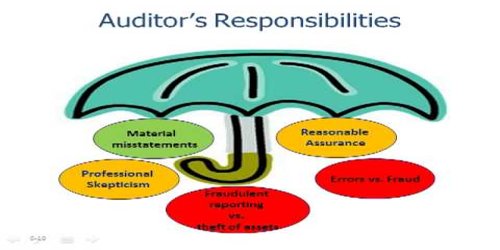An Auditor is a person or a firm appointed by a company to execute an audit. The auditor’s job is to write a report at the conclusion of the audit which determines the level of accuracy and clarity that the organization has accounted for.
Responsibilities of an Auditor when Errors and Frauds are not detected
The term error refers to unintentional misstatements or omissions in financial statements. Errors may involve-
(a) Mistakes in gathering or processing accounting data from which financial statements are prepared.
(b) Incorrect accounting estimates arising from oversight or misinterpretations of facts.
(c) Mistakes in the application of accounting principles relating to amount, classification, and manner of presentation or disclosure.
The term irregularities refer to intentional misstatements or omissions in financial statements. Irregularities include fraudulent financial reporting undertaken to render financial statements misleading, sometimes called management fraud, and misappropriation of assets, sometimes called defalcations, embezzlements, or employee fraud. Irregularities may involve the following:
(a) Manipulation, falsification or alteration of accounting records or supporting documents from which financial statements are prepared.
(b) Misrepresentation or intentional omissions of events transactions or other significant information.
(d) Intentional misapplication of accounting principle relating to the amount, classification, manner of presentation or disclosure.
If an auditor has not found any errors or frauds on the financial statements, he can do any of them either:
(a) Further Analysis: The auditor in this stage can move for further analysis like inquiring, vouching, tacking etc.
(b) Give Opinion: Auditor can give his opinion as unqualified that means the financial statements are prepared with conformity with GAAP and in accordance with SAS.
Finally, an auditor audits the financial statements for finding any errors and irregularities. If any errors or irregularities are not found, he may give an unqualified opinion.
















